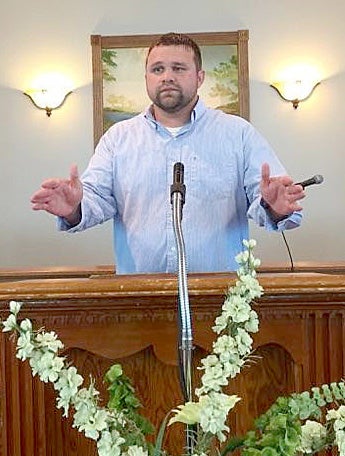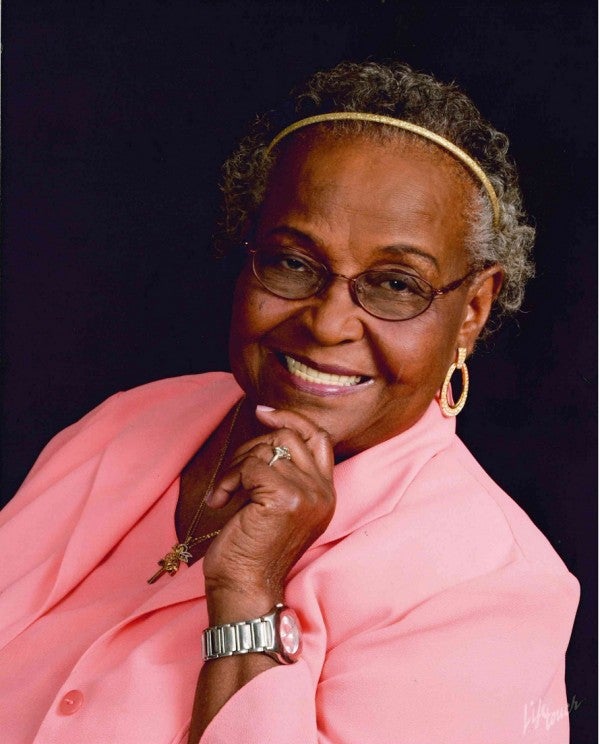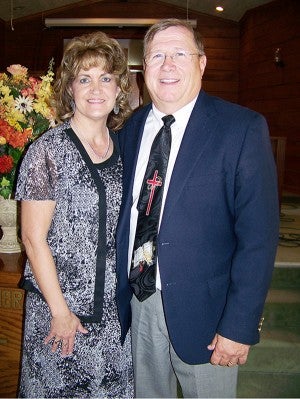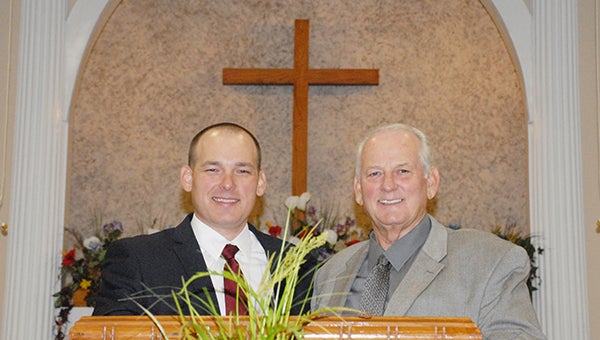For local pastor, preparation key to effective sermons
Published 8:51 am Monday, August 17, 2015
Thomas First Baptist Church Lead Pastor Shadd Pittman surrendered to the ministry in September 2004.
“The Lord saved me in December of 2003, and immediately I began to feel him drawing me to something different,” Pittman said. “The Bible says that person that desires the office of a pastor, bishop, a minister desires a good thing. I believe Jesus works in those three passions. I think a lot of people think Jesus is this spiritual magician when they try to find the Will of God. Jesus wants you to know his will. He’s not playing hide and seek with it. Jesus instills in us, as his people, passions. The passion that Jesus placed in me was to promote him and his word in front of people.”
Pittman said in December of 2003, he was sitting in Ben’s Ford Baptist Church one afternoon. Nobody was there, and Pittman said Jesus performed the work of salvation in him.
“It had never been done before,” Pittman said. “The reason I know that Jesus performed that work is because he implanted in me a different heart spiritually. Now that brought about conviction for the things I had done. It doesn’t mean I have never sinned again. It doesn’t mean that I haven’t messed up. It doesn’t mean I have not made terrible decisions. Jesus has been there to convict me, to reprove me, to bring about repentance in my life. Jesus has matured me spiritually and Biblically over the last 12 years now, and I can see the fruits of God’s life in me now.”
Each week, Pittman spreads God’s word at Thomas First Baptist Church, which is about 5 miles north of Pine.
Much preparation goes into Pittman’s sermons.
“When I got called to Thomas … I began to pattern out what I was going to do and how I was going to do it,” Pittman said.
Pittman said he likes to preach a format called expository preaching, which means one works through certain subjects. Most of time, it’s working through books of the Bible.
“We started in the Book of John. We went through John chapters 1-3 between November and May,” Pittman said. “We had a sabbatical from John for the summer. I did a sermon series on prayer and a sermon series on church vision. Then, we started back with John chapter 4.”
Pittman said he begins putting the sermons together on Sunday afternoons getting ready for the following Sunday.
“When I finish one sermon, I actually get started with the next. I think the chief most important thing would be prayer,” Pittman said. “You start putting prayer into a sermon. I kind of know what I’m going to preach. I know what’s coming next. We preach John chapter 4, verses 1-14, this week about the woman at the well in Samaria. We asked the question, ‘Is Jesus really who he says he is?’ The title of the sermon was ‘Living Waters, Part 1.’ Next week, we will finish up John chapter 4 with the woman at the well, and we’ll do about the next 15, 16 verses next Sunday.
“If I sporadically plan sermons, talk about something totally different week-after-week and don’t systematically teach them the Word of God, then what are they really going to learn? In school, when you’re in math class, you don’t learn how to do graphing one day, equations the next and then theories the next. It’s a systematic type deal,” Pittman said. “If we’re going to do that in school, if we’re going to do that in the avenues of our life that provide jobs and careers, then it seems all the more important to be systematic about Bible teaching.”





